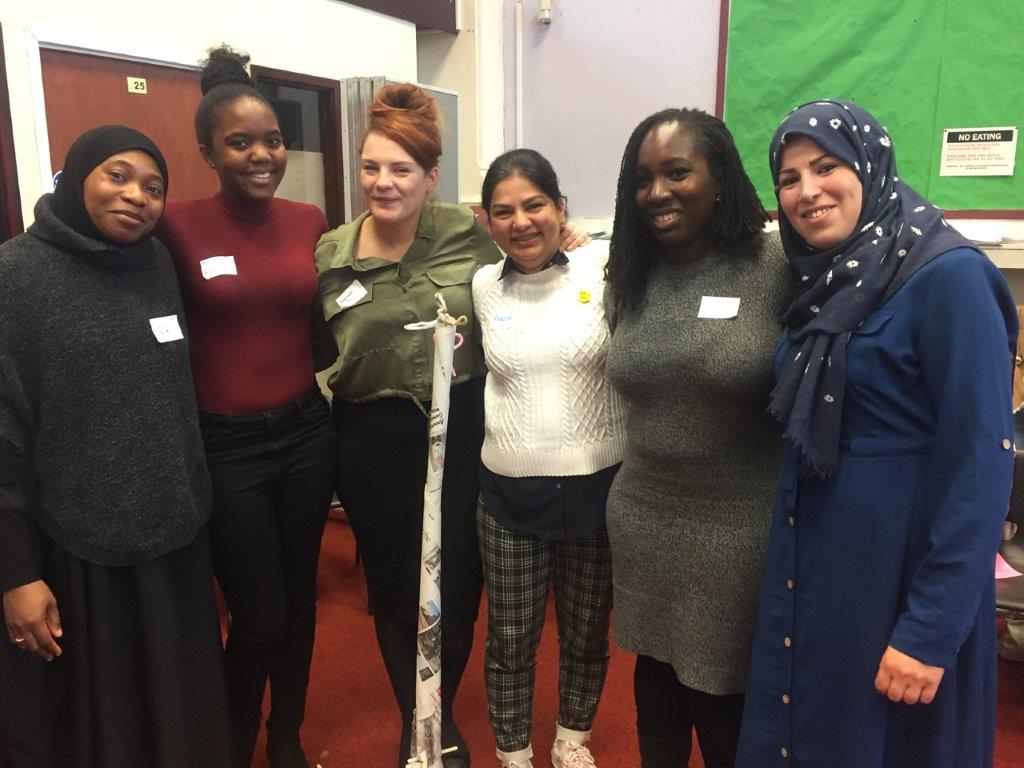
Extra money to support communities in greatest need
Projects that support people with a higher level of health and care need are set to receive a funding boost.
The Nottingham and Nottinghamshire Integrated Care System (ICS), a partnership of health and care organisations, has just approved £4.5m for projects across the city and county.
The Health Inequalities and Innovation Investment Fund was put in place to help provide resources to projects within Nottingham and Nottinghamshire which aim to reduce health inequalities* by finding new ways of working. Bids were received from over 100 projects and, following a competitive bidding round, nine fantastic projects have been selected to receive funding. The ICS will work with those who were not selected to find alternative sources of funding or to refine their proposals.
A key theme across many of these projects is using voices from the local communities impacted to help shape services, reduce barriers to access and in turn better meet the needs of the most at risk populations to help reduce health inequalities in the longer term.
Kathy McLean, Chair of the Nottingham and Nottinghamshire Integrated Care Board, said: “There is a huge difference between the life expectancy and quality of life of those people who live in the most deprived areas of Nottingham and Nottinghamshire and those living in the most affluent areas. Other factors such as disability, employment status, housing and mental health can also play a part.
“This fund is aimed to help those people who are currently the most disadvantaged. By offering more personalised, targeted support, we can help to reduce some of those health inequalities and enable people to break that cycle of dependency and live healthier lives.”
Nine projects have been awarded money, including:
Family Mentor Scheme:
The first 1001 days of life is a period of rapid development which is crucial in laying the foundations for good health throughout life. Factors which can support a more positive first 1001 days can be harder for families living in more deprived areas, which can have an impact on health in later life.
The Family Mentor service, which is delivered by Small Steps Big Changes, supports families from pregnancy up to their child’s 4th birthday. The service is delivered by a highly trained paid peer workforce who have experience of parenting via local voluntary and community sector providers. They work with families with a higher risk of poorer health outcomes by using a toolkit of evidence-based guidance to support the healthy development of babies and young children. The home visiting programme, Small Steps at Home provides regular visits for families up until their child’s first birthday, giving them the support and advice needed to give their babies the best start in life.
The programme has been conceived and developed with parents and the local community. The service has been running in Aspley, Bulwell, Hyson Green and Arboretum, and St Ann’s and the Health Inequalities Fund will allow this to be extended even more families living in Nottingham.
Supporting people with Severe Multiple Disadvantage (SMD)
People experiencing two or more issues including mental health issues, homelessness, offending and substance misuse are amongst the most vulnerable to poor health outcomes within our population. These are known as people with Severe Multiple Disadvantage (SMD). The challenges they face substantially increases their exposure to chronic health problems, a shortened healthy life expectancy, and significantly premature death.
The additional funding will help create a service that provides intensive support for people based on their individual needs. The service will be provided through one point of contact who can link the person into support from a variety of agencies and help maintain engagement with those services.
Part of the money will be spent on creating a clinical team for the county to support people with SMD. This team will provide time-limited specialist clinical provision to people who are alcohol dependent and not receiving treatment. It will also support people who are experiencing physical and mental health challenges as a result of homelessness or other issues. The team will proactively target people to help address physical health, mental health and drug and alcohol dependency problems at the same time.
Childhood obesity
There is a concerning rise in childhood obesity rates, particularly in low-income areas, which is more than double compared to affluent areas and is getting worse. Obesity in children can lead to health conditions in later life and the development of conditions such as Type 2 diabetes.
The funding will be spent on a service which will offer community-based personalised weight management support for children and young people who live in areas of deprivation. Services will be tailored around the needs of the young person and will empower them and their families with the knowledge and tools to make informed decisions about their health. The service will address not only the physical aspects of obesity but also the psychological and emotional factors contributing to the issue.
